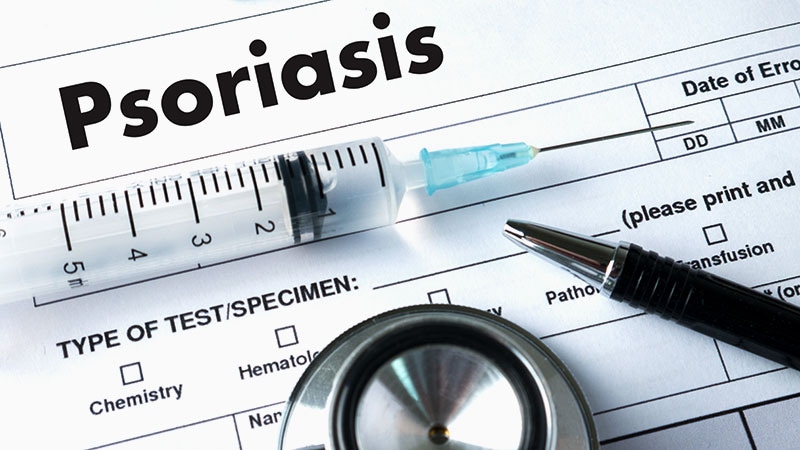Biosimilars Are Effective and Safe in Treating Psoriasis - Medscape

A systematic literature review published in JAMA Dermatology provides proof that biosimilar drugs are safe and effective in treating psoriasis. An analysis of clinical studies that compared approved biological drugs (so-called originator drugs) with their biosimilar counterparts has failed to find clinically meaningful differences between the two with respect to efficacy and adverse events.
This evidence could be used to promote the use of biosimilars in dermatology and in medicine generally. Yet, despite their potential advantages ― namely, easier access to innovative therapies and consistent economic savings ― doctors and patients alike have been slow to accept biosimilars as a treatment option.
Brand Name Appeal
Resistance to biosimilars is a problem in Italy, although the country is currently seeing a reversal of this trend. "After a period of reluctance, the use of biosimilars has gained quite a foothold. This includes new initiatives intended to promote their use. The field of dermatology has been somewhat stagnant in its adoption of such drugs, in part due to the stances held by patient associations and some scientific societies," said Luigi Naldi, MD, director of the Dermatology Department at the Berica di Vicenza Health Trust No. 8, honorary chairman of the GISED Center (which develops independent clinical research in dermatology in Italy), and co-author of an article that accompanied the systematic review.
In dermatology, as in other fields, marketing and brand names play a big role in influencing a product's image. Doctors and patients can be reluctant to switch from a well-advertised reference product to its alternative, which may have been the subject of modest or insignificant promotional campaigns.
Yet the future direction of biosimilars is becoming clear. "I think that we will move closer and closer toward the use of products whose patents have expired and for which we will hopefully have an extension of use also outside of hospital reference centers," said Naldi.
What Research Shows
Biosimilars can be approved for psoriasis on the basis of evidence extrapolated from results in other conditions. A biosimilar can be approved for all indications registered for the originator without having to be tested directly in clinical trials for each of these. Hence, the benefit of collecting efficacy and safety data for biosimilars used specifically to treat moderate to severe psoriasis.
The critical analysis included 14 clinical studies (10 with adalimumab, two with etanercept, one with infliximab, and one with ustekinumab) and three cohort studies (one with adalimumab, one with etanercept, and one with infliximab and etanercept). Twelve trials compared biosimilars with originators in originator-naive patients (starters), and 11 trials compared switching from originator to biosimilar (switchers) with continuous originator treatments.
There was no clinically or statistically significant difference between the comparators in rates of achieving 75% improvement in Psoriasis Area and Severity Index scores and risk for adverse events at week 16 and week 52. Two cohort studies showed no difference in effectiveness and safety outcomes between originators and biosimilars.
The results of two randomized, placebo-controlled studies suggested that switching from adalimumab to biosimilars BCD-057 and GP2017 led to a reduction in efficacy, while one cohort study suggested that switching from adalimumab to GP2017 and SB5 was associated with a greater number of adverse events. However, these differences were not clinically significant, and the level of evidence was low. The authors of the analysis hope that their findings will eventually be investigated in new clinical studies, and they lament the lack of real-world studies on this topic.
Support for Biosimilars
The systematic review did not highlight important differences in efficacy and safety between biosimilars and originators adalimumab, etanercept, infliximab, and ustekinumab for patients with psoriasis who had not previously been treated with biological therapies. "Consequently, the biosimilars assessed in our study could be considered alongside their counterpart originators to improve accessibility to biological treatments," the study authors write.
Regarding switching from originator to biosimilar, most available studies have not revealed any impact on treatment functionality. "Therefore, switching patients currently being treated with an originator to a biosimilar could be assessed, where clinically appropriate, to reduce treatment costs," they add.
"Biosimilars are an important class of biological drugs under rapid expansion. From a social perspective, adopting biosimilars could have its advantages, including better access to treatment for a greater number of patients and savings on the cost of drugs," wrote Luigi Naldi and Antonio Addis, head of the Drug Epidemiology Unit at the Department of Epidemiology in the Lazio region of Italy, in an article that accompanied the study. "The cost-effectiveness of an approach that from the outset favors choosing a biosimilar over different strategies that exploit drugs with a greater level of efficacy but which lack a biosimilar counterpart will need to be established in the long term."
This article was translated from Univadis Italy, which is part of the Medscape professional network.
Comments
Post a Comment